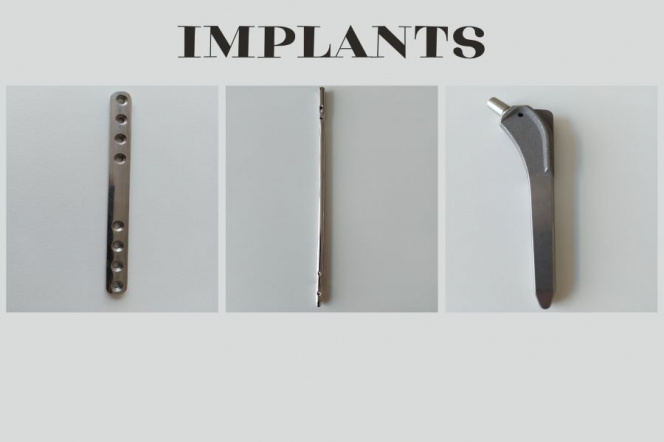Date added: 2021-08-25
How to increase the longevity of an implant? This is what our scientists are working on

Currently a team from the Department of Biomaterials and Biotechnology is working on increasing the longevity of an implant to ensure its better integration with a bone.
- Bone system, an unequally perfect mechanical-hydraulic-electrical system needs to cooperate with much simpler, artificial element - an implant - says Beata Świeczko-Żurek, head of the department.
An implant for life?
Fixation plates, phalanx, hip or knee joint are just a few of the commercially available implants. However, there is more than just an implant.
Biotolerance is the most important issue as far as clinical implantology is concerned. It includes the influence of an implant on a body tissue and the reaction of a body tissue to a foreign body or its degradation products.
To make sure that the cooperation is possible, it is necessary to adopt the surface of an implant to the requirements of an organic tissue. This is a very complicated problem and has not been completely solved yet. It is a big challenge for those who design implants.
To ensure that an implant is integrated with the body, it is necessary to select a bio-compatible material which will not be treated by an organism as a foreign, harmful body. In case of load bearing implants, or endoprotheses (such as a hip joint implant), we are dealing with titanium alloys which have been used for approximately 50 years. The problem, however, is that the commercially available implants are not permanent and after some time become loose. Currently the team works on prolonging the longevity of an implant to ensure that it properly anchors to the bone structure. This is what Michał Bartmański PhD, ME is working on. The scientist creates a coating that will secrete an antibacterial substance curing the inflammatory state. This would provide an excellent protection within the place of implantation - bactrerial infections also cause the loosening of an implant.
The time of a safe usage of implants is specified individually for each biomaterial depending on the functions it is to play in the human body. It depends on many factors such as: already mentioned biotolerance, corrosion resistance and mechanical properties.
Department of Biomaterials Technology
Department of Biomaterials Technology deals primarily with increasing the longevity of implants to ensure their longer operation without any adverse effects. Various coatings and their modifications are mostly created in the department.
The Department of Biomaterials Technology within the structures of the Faculty of Mechanical Engineering and Ship Technology employs: Beata Świeczko-Żurek Phd, DSc, ME (head of the department), professor Andrzej Zieliński PhD, DSc, ME, Magdalena Jażdżewska PhD, ME, Beata Majkowska-Marzec PhD, ME, Alicja Stanisławska PhD, ME, Michał Bartmański PhD, ME, Magda Dziaduszewska MSc, ME, Dorota Rogala-Wielgus MSc, ME, and Marcin Wekwejt MSc, ME.



